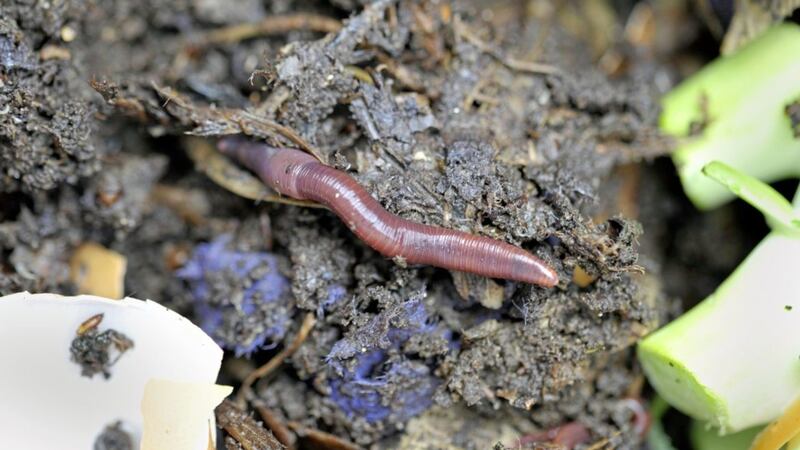THE festive period is a peak time for waste. Packaging for presents sees arguably the greatest squander, as evidenced by the many over-brimming black bins I saw on my drive to work yesterday. Much of this material is destined for landfill or an incinerator, brushing the waste problem under the carpet, so to speak, rather than actually solving it.
There’s also a lot of food waste. Even in our own home, where there’s two dogs and a fire to help dispose of scraps and leftovers, there’s still a mountain of vegetable peelings to be disposed of. With our council following the lead of others and banning food waste from black bins, this could potentially create a problem.
However, for the gardener, organic waste of this kind is an opportunity rather than a headache, because if recycled correctly it can help revitalise your earth and bring greater life to the garden.
The key protagonist in this natural process is the worm. Charles Darwin described them as the "the intestines of the soil", as earthworms spend their days munching through half their body weight of dead organic matter, which is deposited out the other end as worm castings – a refined, nutrient rich material that when added to soil will both condition and fertilise.
This composting process is of course nothing new and every gardener should be availing of it in one form or the other, whether in a traditional heap or a vermin-proof bin. Personally, I use both – a heap for garden waste, seaweed and cardboard, and a bin for kitchen waste which, if deposited on a heap, would be a rat’s ready food supply.
Then there is a third composting component – the wormery. This injection-moulded, self-contained worm colony is dedicated to turning kitchen waste into black gold.
Consisting of three trays initially, the process begins in the bottom tray where the first batch of worms, food scraps and shredded paper are placed. The worms immediately get to work consuming and recycling the organic matter on the first tray while other kitchen waste is added to the second tray above.
Favourite worm dishes include uncooked vegetable peelings served with used tea bags and blackened banana skins or over-ripened fruit on a bed of coffee grindings, garnished with the contents of a vacuum cleaner bag. Things to avoid putting in your wormery include meat, fish and cooked food.
Once food becomes scarce on the bottom level the worms naturally gravitate upwards through the holes provided, leaving a tray of worm castings behind, which is then easily removed. The worm cast can be used like any conventional, commercial compost – only with a completely clean conscience. How regularly you harvest the worm castings and how many trays you have depends on how much suitable waste you generate.
If producing high-quality, organic, peat-free compost wasn’t enough, the wormery also produces liquid fertiliser, which can be drained off from the sump at the base via a tap. Diluted up to 10 times in water, this sweet-smelling nectar is the equal of anything you’ll buy down at the garden centre.



